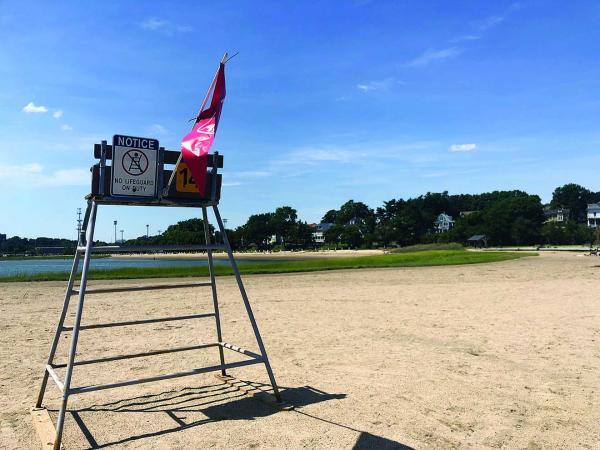September 14, 2022

Malibu Beach in Dorchester. File photo

Some of Dorchester’s shoreline is expected to receive a boost amid the ongoing development boom with the establishment of a trust geared toward funding preservation and climate mitigation costs.
Gov. Baker this summer signed a law that establishes a trust meant to ensure the “long-term conservation, maintenance and improvement” of properties along the shoreline.
The law places the governor’s chief of energy and environmental affairs as the administrator of the fund which is expected to receive income from a variety of sources, including developments planned for the Morrissey Boulevard corridor, according to state Sen. Nick Collins and state Rep. Dan Hunt, who shuttled the legislation to the governor’s desk.
The fund could also attract money from public or other private sources, such as federal or private grants, and donations. Lawmakers are eyeing legislative appropriations and long-term commitments, not just one-time infusions, to boost the fund.
“We want to make sure the environmental investments stay locally and we can also find ways here to support an increase in maintenance,” Collins told the Reporter.
The trust is specifically meant to benefit the beaches at Tenean, Savin Hill, and Malibu Beach, the shoreline along Columbia Point, and Victory Park within the Morrissey Boulevard corridor. McCormack Memorial Park, a small patch of parkland located on Columbia Road, is also included on the list, which mostly consists of state Department of Conservation and Recreation properties.
The fund comes as major developments are set to rise along the shoreline. The largest, known as Dorchester Bay City, is currently under review by city planners. Expected to cost $5 billion over 15 to 20 years and span 6.5 million square feet, the project will also have 21 acres of open space on the 36-acre site, much of it on the shoreline between Moakley Park and the Harbor Point apartments. The project will essentially create a new waterfront neighborhood, steps from the JFK/UMass MBTA Station.
“It’s a receiver and a steward of the work that needs to be done,” Collins said of the Dorchester Shores trust legislation, which is modeled on a 2008 law creating the Salisbury Beach Preservation Trust Fund. People using that site, which is on the Massachusetts-New Hampshire border, for camping and parking are charged $3 admission. The money collected has been spent on rehabbing the boardwalk, improvement to comfort stations, installation of fencing, beach and campground sewer fixes, and routine expenses.
A similar trust exists for the maintenance and preservation of Horseneck Beach, which is in Westport, close to the Massachusetts-Rhode Island border.
“As discussions move forward about environmental mitigation at the state and city level, this ensures Dorchester is a place and focused area for us to invest in infrastructure that we know we badly need,” Collins said.
Sea level rise is expected over time to hit Dorchester with significant flooding from storm surges, with the areas close to JFK/UMass Station expected to be particularly vulnerable, according to a city report titled “Climate Ready: Dorchester” that says “damage to exposed roads and the MBTA Red Line from this type of storm could isolate Columbia Point from the rest of Dorchester and impact transportation connections to North Quincy.” The study added that “Flooding will extend by mid-century along the Neponset River and Columbia Point.”
Moakley Park, which is shared by Dorchester and South Boston, is expected to become a “flood entrance” for the South End, South Boston, and parts of Roxbury, the report continued. The park recently received $2.2 million for climate change mitigation.
McConnell Park, a 6.2-acre site by Savin Hill and Malibu Beach, recently saw $7.1 million in improvements, including artificial ridges to protect the park’s softball and soccer fields and neighborhood residents from flooding.
The Dorchester Shores trust will create a funding source to tie together resiliency and maintenance of a “vibrant” green space, according to Alice Brown, chief of planning and policy at Boston Harbor Now, an advocacy group.
“It’s a great contribution to getting toward the goals we want,” she said.
Around the same time he okayed the establishment of the Dorchester Shores trust, Baker also signed a bill creating a special commission to study the Morrissey corridor, with a focus on what it needs to improve its transportation, climate resiliency and infrastructure needs. The commission has a June 2023 deadline to file its report with state lawmakers.



